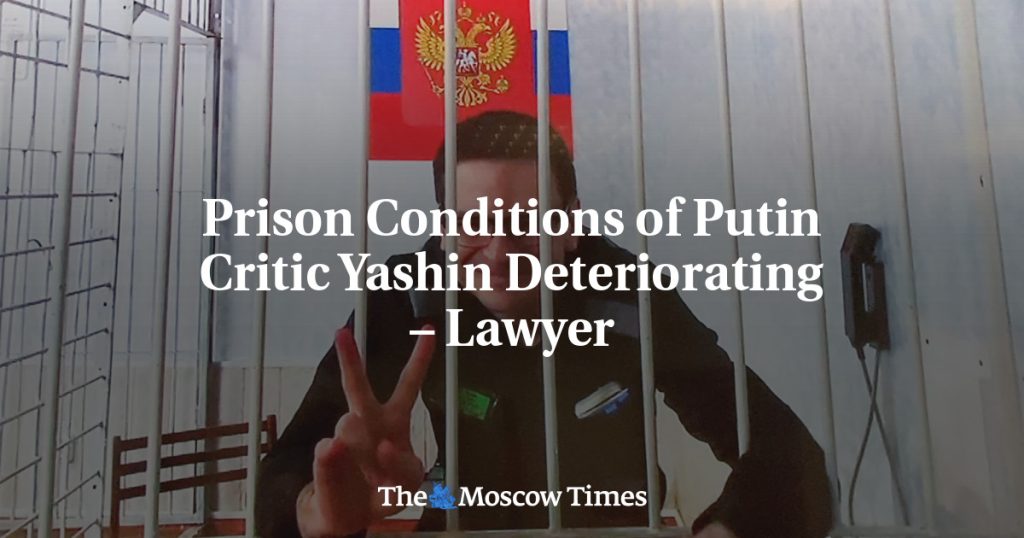Russian opposition politician Ilya Yashin, who is serving an 8.5-year sentence for denouncing Moscow’s Ukraine offensive, has experienced worsening conditions in prison after being moved to a punitive cell. This development has raised concerns as fears for jailed Kremlin critics have heightened following the death of opposition leader Alexei Navalny in February. Yashin, a former ally of the late Boris Nemtsov, was imprisoned for speaking out against the “murders of civilians” in Bucha, Ukraine. His lawyer, Mikhail Biryukov, revealed that Yashin is now subjected to limited movement within the prison, as well as restricted parcels and visits, similar to Navalny’s conditions in a punitive cell.
Previously, Yashin was detained in a barracks with 40 to 60 people at a prison in the Smolensk region. However, he has now been placed under special conditions in a harsh isolation cell. During a recent court hearing where Yashin protested being labeled a “foreign agent” in order to suppress dissent, he voiced his opposition to the law, stating it was created to consolidate Vladimir Putin’s power. Despite the challenging circumstances, Yashin appeared composed and determined, holding onto the cell’s metal bars as he smiled. His mother, Tatiana Yashina, expressed concern over the new conditions but remained hopeful that her son would persevere through this ordeal.
Another prominent figure, Vladimir Kara-Murza, a Russian and U.K. national serving a 25-year sentence on treason charges, has also been moved to a PKT cell in his Siberian prison. Kara-Murza’s lawyer, Vadim Prokhorov, revealed that the prison administration made this decision to place him there for six months. The official reason cited for this move was that Kara-Murza briefly did not have his hand behind his back, highlighting the strict measures enforced within the prison system. The increased scrutiny and harsh treatment of opposition figures like Yashin and Kara-Murza reflect the ongoing crackdown on dissent in Russia.
Food parcels play a crucial role in maintaining good health and well-being for prisoners in Russian detention facilities. Limited access to parcels, visits, and reduced movement further isolate individuals like Yashin and Kara-Murza, hampering their ability to stay connected with the outside world. The suppression of dissent through punitive measures and designated labels like “foreign agent” serves as a tool to silence opposition voices and consolidate power. As the international community continues to monitor the situation of incarcerated Kremlin critics, concerns about their safety and well-being persist, given the deteriorating conditions faced by individuals like Yashin and Kara-Murza.
Despite the challenging circumstances and harsh treatment, these opposition figures, along with their families and supporters, remain resilient and hopeful. Tatiana Yashina’s unwavering belief in her son’s strength and ability to overcome adversity reflects the determination of those fighting for justice and freedom in Russia. The support network for jailed Kremlin critics, both within the country and abroad, plays a crucial role in raising awareness about their plight and advocating for their rights. As pressure mounts on the Russian government to address concerns over the treatment of prisoners like Yashin and Kara-Murza, the need for transparency, accountability, and respect for human rights becomes increasingly urgent in the face of escalating repression and intimidation targeting dissenting voices.


